- Home
- Andrew Wareham
A Place Called Home (Cannibal Country Trilogy, Book 2) Page 6
A Place Called Home (Cannibal Country Trilogy, Book 2) Read online
Page 6
"They got into the store shed and started breaking the bottles. Time I got there it was too bloody late. The boys belted their heads in."
"Right. Accidental death - they made bloody fools of themselves, they got nothing to complain about. You making any money here?"
"Nothing. Picked up a few ounces in the stream, but there's no vein to find, so I reckon."
"No point staying then. I'm issuing a deportation order against you for being in possession of alcohol and distributing it to your boys. Pay the boys off and pack your bag. What's your name?"
Ned took the key to the stores shed, gave it to the boss-boy of the labourers, told him to share out the contents and to bugger off back to his village.
"Master?"
"Talkim!"
"Suppose we find more of the gold stuff? Sometimes we see it in the rivers, little bits."
"You know me. Bring it down to me and I will give you pounds for it, to spend in the store. But no booze! No rum."
The prospector had just enough gold in his poke to pay the costs of flying him down to Cairns, but every few months a pair of Bainings men would turn up at the plantation and empty a coconut shell onto Ned's desk. They soon learned to tell pyrites from gold and were happy to walk back with a dozen of new bushknives and cartons of corned beef and tinned fish; they grew roots and green vegetable in plenty but protein was hard to come by.
Ned realised that he was becoming rich; two plantations and the oil processing plant together were bringing in the money. There would be more opportunities and he was also building up a holding of land down South.
George was going to inherit a pile; he would need to be able to use the power this would give him, and that meant he must be able to talk with the politicians and money-men, the Australians with political clout. That demanded the one thing Ned had not got and could not supply on the plantations: an education. He talked to Jutta.
Six months later they took the train inland from Brisbane and fronted up at a large, red-brick boarding school for an interview with the headmaster and a member of the Board of Governors.
"Mr and Mrs Hawkins, from East New Britain in the Territory of New Guinea - recommended to the school by the Assistant Secretary in Rabaul, who is one of our old boys, of course. And Master George Hawkins. Why do you want your son to come here, Mr Hawkins?"
"Because he needs an education, and he can't get that in Rabaul, sir. I came up the hard way and I have come a long way. He is born into money; he needs to learn how to use it and how to behave in the right way. I can't teach him that - I know all of the wrong ways, probably, and they were right for me but not for him. I am told this is one of the best schools in Queensland, so it is a choice for me."
"You were awarded the MBE and the King's Police Medal - an unusual decoration, that latter. I looked it up. Service to the Police combined with acts of bravery in your case, sir. That says much for you, Mr Hawkins. If George is to come here then he must stay for four years till his first School Leaving examinations. He will not benefit from less than that. He may wish to remain longer."
"Four years is right with me. If he wants more, I'll back him. I won't force him to stay longer than he needs if he don't want it."
"Term commences at the end of January, Mr Hawkins. George will be welcome here."
Ned saw a fellow who called himself Bursar and wrote a cheque which added to his welcome.
They explained to George that he would have to come here for his schooling, returning in December to the plantations for two months at a time.
"If I must, Dad, then I will."
A Place Called Home
Chapter Three
George Hawkins was fifteen, just, and at home in the long Australian summer holiday, a few days before Christmas 1932. He was a well-grown lad, no more than medium height but with broad shoulders promising power when he reached his maturity. His face was square, like his mother’s, very firm on the jaw, intelligent-seeming as well as probably headstrong. He was happy to be back at home in the Islands, free for a couple of months from the forced ingestion of bland pap that passed for an Australian education.
This was the third year he had returned for the holiday, escaping from the exile of boarding school, inspecting Vunatobung and looking for change, which he would deplore. The second of their plantations, his father’s place, Tomorang, was of less interest to him, though he knew that he would one day inherit both; Vunatobung belonged to all three of them together and was home, was where the family lived.
He timed his wander through the back trails of the plantation very carefully, ended up at its edge, where the plantation land turned into bush, in late afternoon. He crept silently through the undergrowth at the edge of the stream, still low, the Rainy Season not quite in, the afternoon thunderstorm not due for an hour.
When he had been thirteen he had happened on this spot accidentally, creeping up on wild cannibals in his game. Now he hoped for better sport.
There was a small pool in the bend of the stream where freshwater crayfish and eels could be taken. Normally the local men fished it but just occasionally half a dozen of the unmarried girls would come and strip off and use the occasion for a swim and half an hour’s play, taking back a feed of crays as an excuse. On his first lucky visit and three times since he had seen a naked girl, had feasted his eyes and given himself memories for the dark, lonely times at school.
There was a patch of heavier shade overlooking the creek, apparently wholly surrounded by bamboo and impenetrable, just one narrow route through where a stratum of rock came to the surface. He pushed slowly through, hearing voices and hoping for luck, gently shifted shoots of new growth until he could see.
Four girls, thirteen or fourteen year olds, soon to be married. Ginger-haired; light, milky-brown skin glistening with water drops; laplaps covering their loins, the cloth soaking wet, near-transparent. He watched intent as first one then another discarded the uncomfortable wet cloths, setting them out to dry and unconsciously displaying their darker hair for him. He spoke Kuanua, had grown up playing with the village children heard them agreeing to come back next day if it was not raining, the Wet might start any day. He wondered what might come about if, just by coincidence, he happened to be swimming in the stream nearby when they came. Not even to himself would he actually say the words, but anything might happen, you never knew...
The sky threatened but the storms held off. George decided to go for his swim - it was sticky and he would enjoy cooling off, so he told himself. He walked the mile through the tall coconut palms and the cocoa trees at half their height, thankful for the heavy shade. The cocoa trees were podded in the mornings, the labourers working in the fermentery in the afternoons, never out in the plantation proper. He was sweating heavily by the time he reached the creek, forgot his unlikely fantasies in the pleasure of cooling down in the running water, relaxed in comfort.
He was splashing in an inelegant crawl when he heard sudden giggles, saw two girls, hands to mouths but not running away as was proper. He stood waist deep in the shade of the bank, too wise to expose his bare back to the sun, called a greeting.
They stayed to talk, after a while told him their names, Derry and Pilake. They eventually joined him for a swim, laplaps decorously swathed from thighs to necks, totally aware of their shape-clinging wetness. Once or twice they 'accidentally' brushed against him, breaking away before he could grab. Pilake, more nervous, suddenly ran out of the water, said they must go, they might be looked for. Derry followed more slowly, stretched languorously in generous display, whispered that she might be back, 'in a day or two', left him to dangle on her string. Somehow as she climbed out her laplap slipped, exposed a fleeting glance of a single, large, firm, uptilted breast, a picture that forced George to submerge in hiding.
It rained for three days in a row, the Wet coming in with a rush as normal, George forced to hang about the house, imagination frantic, trying to show an interest in the office and working of the fermentery, making a valiant and
wholly unsuccessful attempt to disguise his unrest from his parents.
"He is growing up, Ned. Perhaps it is too much alone for him out on the plantation without friends, boys of his own age to be with."
"Could be, you’re right about him growing up, though. He'll have to be thinking about the future soon."
"He has a good school report."
"Not bad - better than I was likely to do at his age. But he has to think about what comes next."
"The school say he could go up to University - in part that is because it is all they know, hidden away from the world in their classrooms, like the nuns. But it could be a good thing, if he wants it. We could pay for it, I think?"
"Yeah, the money's there. Not as easy as we could have five years ago in the boom. Prices are so far down now it ain't hardly worth sending anything to market, even the cocoa only just pays its way."
"But we have savings?"
Ned had never informed or consulted her on money matters. Making a living was 'man's work', not for her to worry about.
"There's enough money down South, in Brisbane, to keep you for the rest of your life if anything goes wrong up here."
His hand crept round her waist as he spoke, raised to cover a breast, talisman against disaster. Jutta smiled and rubbed her buttocks into him in silent promise. In her early thirties she had kept her slim full-busted figure, proudly displayed in defiance of flapper fashions - corsets and tropical heat did not mix, and in any case her Ned liked big breasts and that was far more important. The climate had not yet dried her out, though each year she felt her skin thickening, leathering, getting towards the lined desiccation of the tropical European. Coconut oil, moisturising creams and lotions crowded her dressing table, witnesses to the fight to keep her looks, to remain desirable, doubly important to her because she believed, in the quiet of the night, that she had failed by producing him only the one son, a joy and a blessing, but no substitute for the quiverful he had a right to.
Ned, content beyond anything he had dreamed, waited in expectation of the end to his idyll, because he knew that happy endings never came for gutter rats. For the while he lived life to the hilt, happy with the wife he loved, utterly satisfied. He was forty-six now, he thought, greying rapidly, still lean and quick in his movements, fit and, apart from the malaria, healthy. The fever was an old friend now, laid him flat for a several weeks every two or three years, was a nuisance, dangerous but tolerable because it could not be cured. He was a respected man, regularly called upon for advice and opinion by the Administration - there would be another honour soon, so he guessed, an acknowledgement of a quarter of a century in the Islands.
He had made money in the good years of the Twenties and the Depression, a disaster for so many, was set fair to make him wealthy. He had been in Brisbane, on his three-yearly holiday, making arrangements and buying uniforms for George's schooling when his bank manager had enthusiastically told him of the fortunes to be made on the Stock Exchange, the great boom in the market in stocks and shares. All he had to do was buy shares, any shares, and then sit back and watch them rise in price.
The gutter rat surfaced, nose twitching - he knew all about the fast buck, about something for nothing, and they were not going to catch him that way, no sir! He turned bank deposits into gold bullion which he put away in a secure safe deposit; then he floated forty-nine per cent of his Tomorang Plantation on the Exchange, was amazed at the way the shares were snapped up at eight times par and put the cash away safely. In 1931 he bought the shares up at a shilling in the pound from investors thankful to see any cash at all, desperate for money.
Gold bars increased in value as deflation bit after the second crash and Ned turned them into cash as properties came onto the market, a buyer's market. Bankruptcies meant that businesses sold their land for any price they could get and Ned's agents picked up building plots in Brisbane and around Cairns for a tenth, or less, of their reasonable worth. There would be a good living from rents if ever they had to flee Rabaul and eventually prices would return to a sensible level to show a huge profit.
There was certainly money enough to pay for George to stay two more years at school and then three at university and he would not begrudge the expenditure, while there was a point to it and George wanted it.
Reluctantly, Ned moved his hand. It was lunch time and they could hardly retire to the bedroom now. He adjusted his dress and stood back.
"I'll talk to him now. Do you want to come too?" He was hopeful that she would, being unsure of the protocol for fatherly chats.
George was on the verandah, plate on his knee - his adolescent appetite demanded a meal at lunchtime rather than the fruit and coffee that satisfied his parents. He seemed a little distracted, unable to concentrate at first, took a minute or two to grasp what they were talking about.
"University? Do I have to?"
"No." Perversely, Ned felt he should push the case, even though he was unconvinced himself. He did not want his own bias to unduly influence George. "You don't have to go because there ain't no point trying to force you. I couldn't make you work and be successful if you didn't want to. But you might like it. You could take one of them courses in agriculture or something, learn about growing new crops, and things."
What 'things' were he had no idea - he hardly opened a book from one year's end to the next; he was not very good at reading in any case. Jutta came to the rescue.
"If plantation life was something you did not want, then you could learn to be an engineer or a lawyer or something in Australia, ja?"
"No! I want to stay up here, New Guinea Side."
"Good."
Silence.
"Look, nipper, you got to have some education to keep in front of them crafty sods in the Administration. I got it easy with them because they're frightened of me - I was here first, in the War; I set it up for them. I was a policeman too, and every bugger's nervous when there's a blue uniform close to. But you won't have it that way, you'll have to talk to 'em on their terms, from books. But you don't 'ave to stay South too long. You get examinations, certificates, soon, don't you?"
Ned, having been a ship's engineer, had a certificate of his own, vaguely presumed that all learning led to its piece of paper.
"First leaving exam's in October."
"You'll be sixteen then, almost."
Ned's mind went back to the waterfront at Southampton where he had been at about George's age. It had made an adult of him too young. George could stay a boy a bit longer than he had, but it was coming time for him to grow up.
"I don't really want you coming here to work, not at first. You need to get away, to be your own bloke. What do you reckon to me contacting somebody over to Lae or Madang, over on the mainland, get you into a firm there for a few years?"
"What about the goldfields, Dad?"
The excitement in his voice alerted Jutta. She realised he had his own ideas.
"No! Too hard, too tough! Men die there."
Ned winced at the gleam in the boy's eyes at the thought of danger - she could have offered no greater encouragement, no better prospect of adventure. The words could not be unsaid, or forgotten.
"I'll look out for you during the year. There's nothing worth bothering with down in the Islands, down Samarai way; all worked out there. There's a fair bit up at Bulolo and Wau, but I don't know if there's still anything for the prospector. It's rough land, uncontacted clans close to. Do you get any shooting at that school of yours?"
"Cadet Force. We all have to belong, I told you about it last year, when you bought the uniform."
"Sorry, forgot! What have you used?"
"Two-two and three-oh-three rifles. Officer's side-arm; that's a forty-five revolver."
"You any good?"
"Average, maybe a bit better. Got the badge."
Presumably the badge showed at least average competence. Ned thought it would be as well to find out. "I'll take you out with me in a few days, as soon as the swamps start to fill up - look fo
r a puk-puk or two - we can always sell crocodile skins, make you a few shillings. Try you out with a twelve-bore while we're at it. Want to go to the village and hire on a couple of blokes to go with us next week? We'll need carriers."
"Can I do it in the morning, Dad? I've got a bit of a headache, not used to the sweats again yet."
George was hauled off to the thermometer and the quinine bottle by his anxious mother before she sent him off for a cooling swim.
George was early at the creek but Derry was there before him, alone, paddling, laplap about her waist. She covered herself with her hands, most inadequately, a picture of shy, maidenly confusion as he stood on the bank, turned away peeping only a little as he stripped off and jumped into the water.
A few minutes splashing together and she worried that the sun might burn his unprotected skin, shooed him into the shade, sat decorously beside him on the bank, timorously allowed herself to be overcome by his urging. After half an hour she guided him into mounting her for his first, brief, clumsy, wildly exhilarating experience. His ignorance and single-minded enthusiasm was such that he did not notice the ease and comfort with which she accommodated him and her immediate descent into the creek to wash disguised the absence of other signs. He felt proud and guilty and very pleased with himself and was ready again within a very few minutes; he did not realise that his voyage of discovery was more in the nature of a guided tour.
George enjoyed his holiday, it was quite the best vacation he had ever had. He became closer than ever to his father, shooting with him in the mornings and earning his applause; learning while walking the plantation in his shadow and glorying in the umbrella of his respect; being useful in the office and feeling often that he was paying his way, working, producing. In the afternoons there was time for relaxation, sometimes of the most energetic sort - at least twice weekly he met Derry, at the creek or in secluded nooks she appointed in the bush. He grew another inch, all of his adolescent spots cleared up, he trod more confidently, developed a stable self-esteem, a quiet assurance. He left on the boat with a few pounds of earnings in his pocket and the unwillingness to return to child's status on his face, his father's advice in his ears.

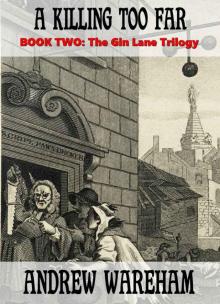 A Killing Too Far
A Killing Too Far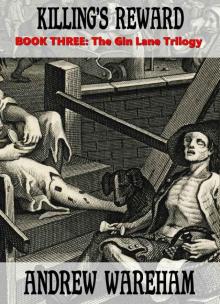 Killing's Reward
Killing's Reward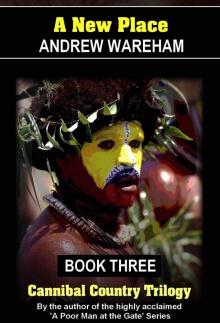 A New Place
A New Place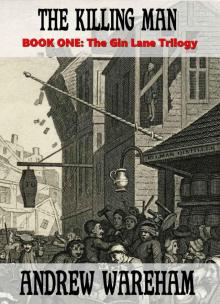 The Killing Man
The Killing Man Bold and Blooded
Bold and Blooded The Breaking Storm (Innocent No More Series, Book 2)
The Breaking Storm (Innocent No More Series, Book 2) Nobody’s Child
Nobody’s Child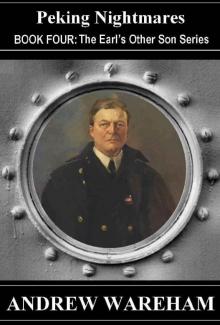 04 Peking Nightmares (The Earl’s Other Son Series, #4)
04 Peking Nightmares (The Earl’s Other Son Series, #4)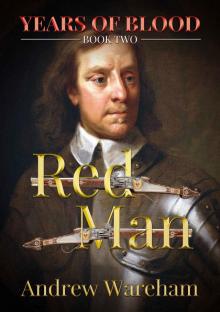 Red Man
Red Man Foreign Mud
Foreign Mud The Gathering Clouds (Innocent No More Series, Book 1)
The Gathering Clouds (Innocent No More Series, Book 1)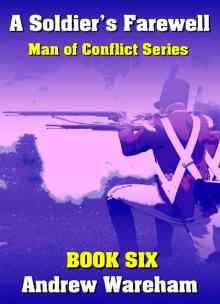 06 A Soldier’s Farewell (Man of Conflict #6)
06 A Soldier’s Farewell (Man of Conflict #6)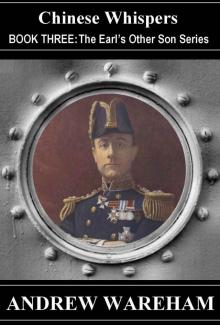 Chinese Whispers
Chinese Whispers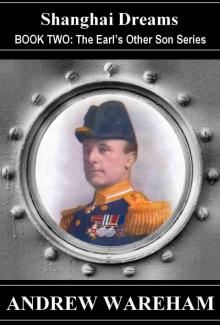 02 Shanghai Dreams (The Earl’s Other Son #2)
02 Shanghai Dreams (The Earl’s Other Son #2)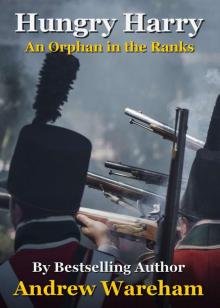 Hungry Harry: An Orphan in the Ranks
Hungry Harry: An Orphan in the Ranks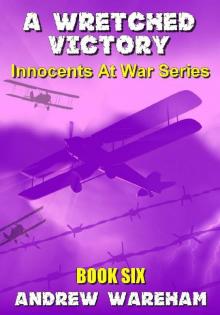 A Wretched Victory (Innocents At War Series, Book 6)
A Wretched Victory (Innocents At War Series, Book 6)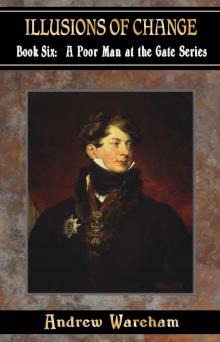 Illusions Of Change (A Poor Man at the Gate Series Book 6)
Illusions Of Change (A Poor Man at the Gate Series Book 6) The Wages Of Virtue (A Poor Man at the Gate Series, Book 8)
The Wages Of Virtue (A Poor Man at the Gate Series, Book 8) Blood and Famine (Man of Conflict Series, Book 4)
Blood and Famine (Man of Conflict Series, Book 4) The Friendly Sea (The Duty and Destiny Series, Book 1)
The Friendly Sea (The Duty and Destiny Series, Book 1) Bursting Balloons (Innocents At War Series, Book 5)
Bursting Balloons (Innocents At War Series, Book 5)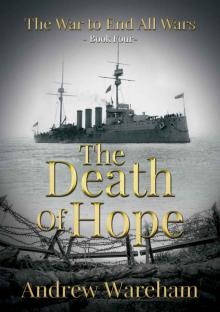 The Death of Hope
The Death of Hope Deadly Shores (The Duty and Destiny Series, Book 11)
Deadly Shores (The Duty and Destiny Series, Book 11)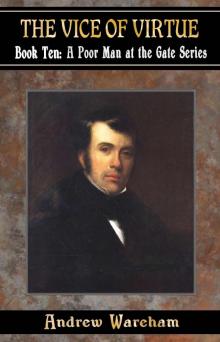 The Vice Of Virtue (A Poor Man At The Gate Series Book 10)
The Vice Of Virtue (A Poor Man At The Gate Series Book 10) Virtue’s Reward (A Poor Man at the Gate Series, Book 11)
Virtue’s Reward (A Poor Man at the Gate Series, Book 11)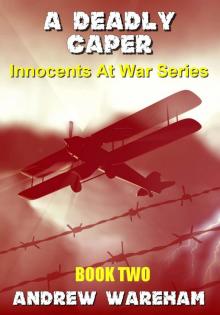 A Deadly Caper (Innocents At War Series, Book 2)
A Deadly Caper (Innocents At War Series, Book 2)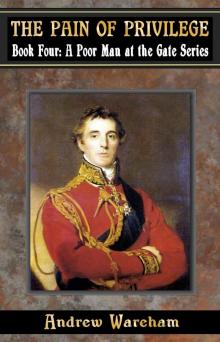 The Pain Of Privilege (A Poor Man at the Gate Series Book 4)
The Pain Of Privilege (A Poor Man at the Gate Series Book 4) Far Foreign (The Duty and Destiny Series, Book 9)
Far Foreign (The Duty and Destiny Series, Book 9)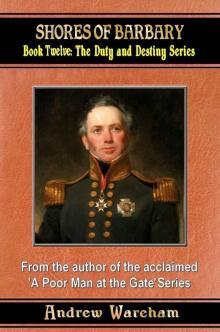 Shores of Barbary (The Duty and Destiny Series, Book 12)
Shores of Barbary (The Duty and Destiny Series, Book 12)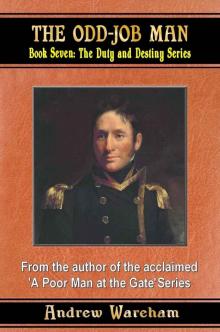 The Odd-Job Man (The Duty and Destiny Series, Book 7)
The Odd-Job Man (The Duty and Destiny Series, Book 7) Fire and Folly (Man of Conflict Series Book 3)
Fire and Folly (Man of Conflict Series Book 3)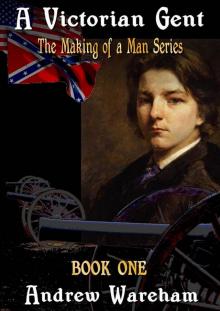 A Victorian Gent (The Making of a Man Series, Book 1)
A Victorian Gent (The Making of a Man Series, Book 1)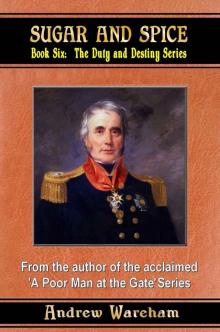 Sugar and Spice (The Duty and Destiny Series, Book 6)
Sugar and Spice (The Duty and Destiny Series, Book 6)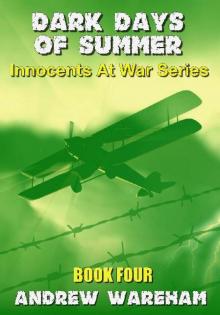 Dark Days Of Summer (Innocents At War Series, Book 4)
Dark Days Of Summer (Innocents At War Series, Book 4)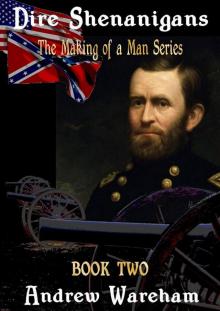 Dire Shenanigans (The Making of a Man Series, Book 2)
Dire Shenanigans (The Making of a Man Series, Book 2) The Fuzzy-Wuzzy Man (The Duty and Destiny Series, Book 3)
The Fuzzy-Wuzzy Man (The Duty and Destiny Series, Book 3)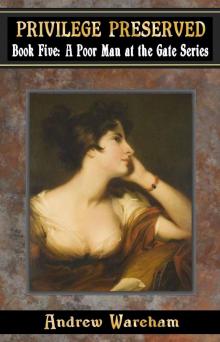 Privilege Preserved (A Poor Man at the Gate Series Book 5)
Privilege Preserved (A Poor Man at the Gate Series Book 5)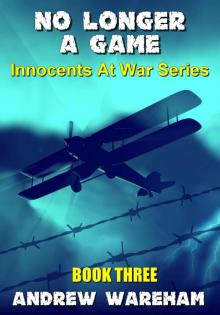 No Longer A Game (Innocents At War Series, Book 3)
No Longer A Game (Innocents At War Series, Book 3)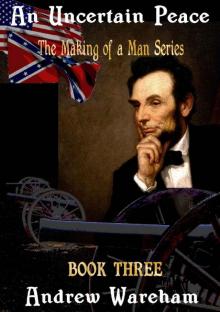 An Uncertain Peace (The Making of a Man Series, Book 3)
An Uncertain Peace (The Making of a Man Series, Book 3)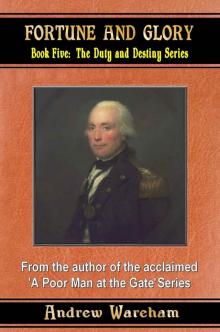 Fortune And Glory (The Duty and Destiny Series, Book 5)
Fortune And Glory (The Duty and Destiny Series, Book 5)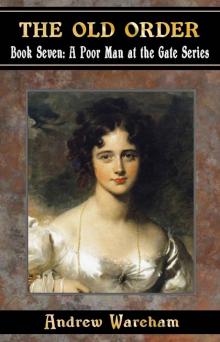 The Old Order (A Poor Man at the Gate Series Book 7)
The Old Order (A Poor Man at the Gate Series Book 7) A Place Called Home (Cannibal Country Trilogy, Book 2)
A Place Called Home (Cannibal Country Trilogy, Book 2) Nouveau Riche (A Poor Man at the Gate Series, Book 2)
Nouveau Riche (A Poor Man at the Gate Series, Book 2) The Privateersman (A Poor Man at the Gate Series Book 1)
The Privateersman (A Poor Man at the Gate Series Book 1) Britannia’s Son (The Duty and Destiny Series, Book 4)
Britannia’s Son (The Duty and Destiny Series, Book 4)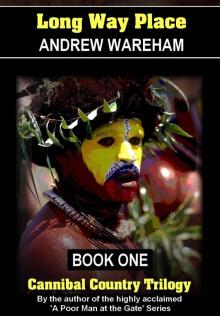 Long Way Place (Cannibal Country Trilogy, Book 1)
Long Way Place (Cannibal Country Trilogy, Book 1) Spanish Tricks (Man of Conflict Series, Book 5)
Spanish Tricks (Man of Conflict Series, Book 5) A Parade Of Virtue (A Poor Man At The Gate Series Book 9)
A Parade Of Virtue (A Poor Man At The Gate Series Book 9) A Busy Season (The Duty and Destiny Series, Book 8)
A Busy Season (The Duty and Destiny Series, Book 8) Billy Bacon and the Soldier Slaves (Colonial Warrior Series, Book 1)
Billy Bacon and the Soldier Slaves (Colonial Warrior Series, Book 1) Raging Rajahs (Man of Conflict Series, Book 2)
Raging Rajahs (Man of Conflict Series, Book 2)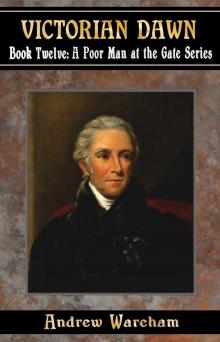 Victorian Dawn (A Poor Man at the Gate Series, Book 12)
Victorian Dawn (A Poor Man at the Gate Series, Book 12) Born To Privilege (A Poor Man at the Gate Series Book 3)
Born To Privilege (A Poor Man at the Gate Series Book 3)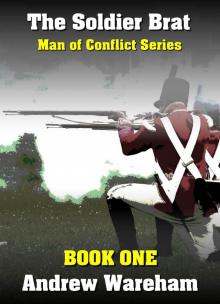 The Soldier Brat (Man of Conflict Series, Book 1)
The Soldier Brat (Man of Conflict Series, Book 1)